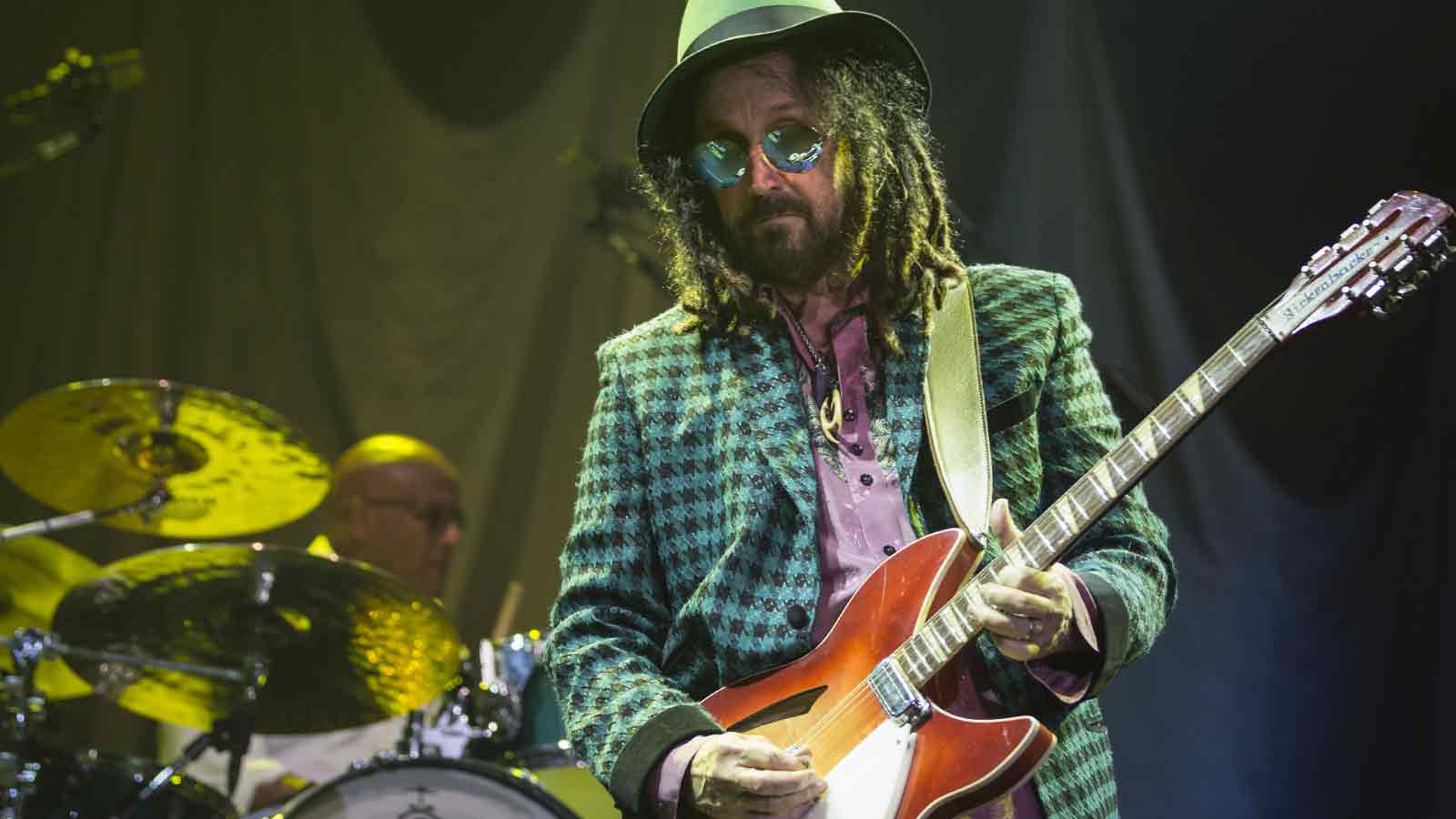5 minutes alone: Mike Campbell
Heartbreaker on a lifetime of guitar

I got my first real six string…
"My very first guitar was pretty much unplayable. I was 14 or something. My mom went to a pawn shop and got me a Harmony acoustic. I didn't know any better! It was one with an f-hole, and it wasn't a good one. They do make some good ones, but this was not a good one. I thought that it was just the way that guitars were. I could hardly push the strings down, and I figured 'man, these guys must be strong!'
Then I went to my friend's house and he had an SG. He handed it to me and I pressed the strings down and was like, 'my god, you don't have to bleed!' I used to bleed over that thing.
"The next guitar I got, my dad sent me a Goya electric six-string. He was on tour in Okinawa and he mailed me this $60 guitar. It was playable. I actually auditioned for Tom on that thing. They laughed at me when I walked in and played it, but once I played Johnny B Goode, they quit laughing."
I want to break free…
"Well, to me, not just guitar, but overall, a light went on for me when we were doing American Girl in the studio. I loved that song the first time I heard it. I thought it would be great with a 12-string, but we didn't have a 12-string at the time.
"When we did the record, I tried to simulate a 12-string the best I could on my Fender Broadcaster by playing octaves.
"If it had been a 12-string I would have done it on one string, but I found a way to play it and sort of make it sound like a 12-string. When we made that record, something happened with the sonics in the studio. We found the right voicings for the guitars and found a sound and feel that felt like us.
"I felt like it was something that we identified, a tonality and soul that was ours. There was something special about it."
Want all the hottest music and gear news, reviews, deals, features and more, direct to your inbox? Sign up here.
Just a castaway, an island lost at sea…
"If I had to pick one guitar to take to a desert island, I'd pick my '67 Rickenbacker 12-string, which I bought a couple of tours ago in New Jersey. The '67 is George-style from A Hard Day's Night, with the double binding. It's just like heaven. It sounds incredible.
"But having said that [laughter], my original 12-string, from the cover of Torpedo, is one of the little body ones. I got it for $120 back in the day, and later I took it to Rickenbacker and they said it was the next guitar off the assembly line after George's. It has the same wiring and sound as George's. That's a beautiful-sounding guitar, too, but it's so valuable that I leave it at home."
See me, feel me…
"Before Mudcrutch [his pre-Heartbreakers band with Petty], I had a three-piece kind-of blues jam band down in Florida. We were playing little gigs around Florida, and we were booked into this school for the deaf.So we're standing up there playing, at a women's club, and it's full of deaf people! Children, mostly.
"They could feel the music, though, and feel the beat, and we were playing and though they couldn't hear us, they were responding to the vibrations. It was pretty amazing.
"That's the magic of music; it's the ultimate communicator. I've had a lot of weird Heartbreakers gigs, too. But that gig was enlightening. These kids were standing and pounding on the stage to the beat. It was incredible."
Learning to fly…
"I tell people to listen really closely to the song when they're working out their guitar parts.
"Listen to the melody and the feel of the singer, and try to get inside the character of the guy who's singing to find an answer to that or an accompaniment that is in that same pocket, that's not showing off or playing above the song, or trying to put too much into it. Try to serve the song.
"Getting to the soul of the song is the key. When the guitar plays a solo part, it should be as good as the guy that was just singing. It should fill that hole with the same character and soul and carry the story along without taking it too far onto a tangent.
"The other thing I notice is a lot of young guitar players want to play fast. I've noticed a lot of them don't have good vibrato. I still work on my vibrato! The vibrato is your signature of yourself."
Total Guitar is Europe's best-selling guitar magazine.
Every month we feature interviews with the biggest names and hottest new acts in guitar land, plus Guest Lessons from the stars.
Finally, our Rocked & Rated section is the place to go for reviews, round-ups and help setting up your guitars and gear.
Subscribe: http://bit.ly/totalguitar


